Recently while I was drafting a blog post on my boy’s monthly progress (he is officially 19 months old!), noting down his milestones and improvements made in speech, I came across an interesting site – Abbott Nutrition Toddler Vocabulary Questionnaire, specifically for toddlers aged 16 to 30 months (as their database is based on standards for children aged 17.5 – 20.5 months and 24.5 – 27.5 months).
Naturally I was very excited about this questionnaire as I believe this is the first Singapore-specific questionnaire for parents to find out their toddler’s level of language development against local norms for expressive vocabulary. Since my boy falls nicely into the targeted age group, I quickly started on the questionnaire by filling in my details and his basic details:

You only need to fill in your details once. Should you want to re-do the questionnaire, or fill it for another child in that age range, you only need to key in your child’s particulars to start working on the questionnaire.
The questionnaire is based on the Toddler Language Development Study initiated by Abbott Nutrition. This is the first Asian study on language development norms for expressive vocabulary in bilingual children, where a total of 1,503 children in Singapore were involved in the study (855 children aged 18-20 months and 648 children aged 25-27 months).
With a background in linguistics and having learnt about language acquisition at university, I would say that I am rather impressed that this questionnaire actually covers a whole range of vocabulary items in order to get a holistic view of the child’s range of vocabulary. I will post the screen shots of some parts of the questionnaire to illustrate that this isn’t just any questionnaire but one that has had much thought put into crafting it.
This online questionnaire requires you to choose two languages that your tot speaks (options include English, Chinese and Malay), and will take about 20 to 40 minutes of your time (that’s how extensive the range of vocab is!) so make sure you set aside some time to do this as there is a time-out feature which means that you can’t start the survey and then go off to run an errand and come back and hope to continue from where you left off. Making sure that I finish the whole questionnaire in one sitting enables me to really concentrate on recalling what my little tot can say!
At the end of the questionnaire, you will be able to print out the results page with recommendations to help support your child’s vocabulary development or save it as a PDF document, but we’ll get to that later. Meanwhile, here are some examples of what you can expect in the questionnaire.
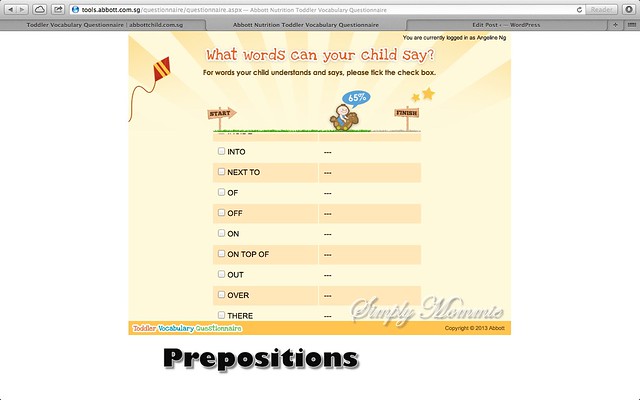
Where it is easier to work on an all-English list first followed by Chinese/Malay as there may not be exact equivalents in the languages, the list of words will be split up for you to work on them easily
There is also thematic vocabulary:
After the questionnaire is completed, you will receive the results which should look something like this:
Apart from just telling you your child’s ‘results’, you will also receive reading tips to further develop your child’s vocabulary, so it’s not simply an exercise in collating your child’s vocabulary!:
Nutrition tips are also given as adequate nutrition is crucial in a toddler’s overall development:
Even if you do not have a printer, you can still keep your child’s results by saving it as a PDF document (just click on ‘Convert to PDF’) and it can double up as a keepsake as well! 🙂
I really enjoyed the process of completing the questionnaire as I had time to really think through what my little boy has managed to pick up so far (and certainly, he’s come a long way!). Although the results of this questionnaire may not be fully representative of your child’s language abilities at the moment, it is quite a good gauge, given the extensive list of vocabulary items you have to go through. The limitations of this questionnaire would obviously be that there are only two other languages (Chinese and Malay) apart from English, hence it may not be useful for everybody and given the extensive nature of the English language, it is impossible to capture every single word that a toddler would know or be exposed to. Nevertheless, it was a fun process and I would certainly encourage others to access this questionnaire to find out your toddler’s level of language development! Note that all children progress at different rates, please seek professional advice if you have any concerns about your child’s development progress.
Disclosure: This is an advertorial. All opinions expressed are 100% mine.


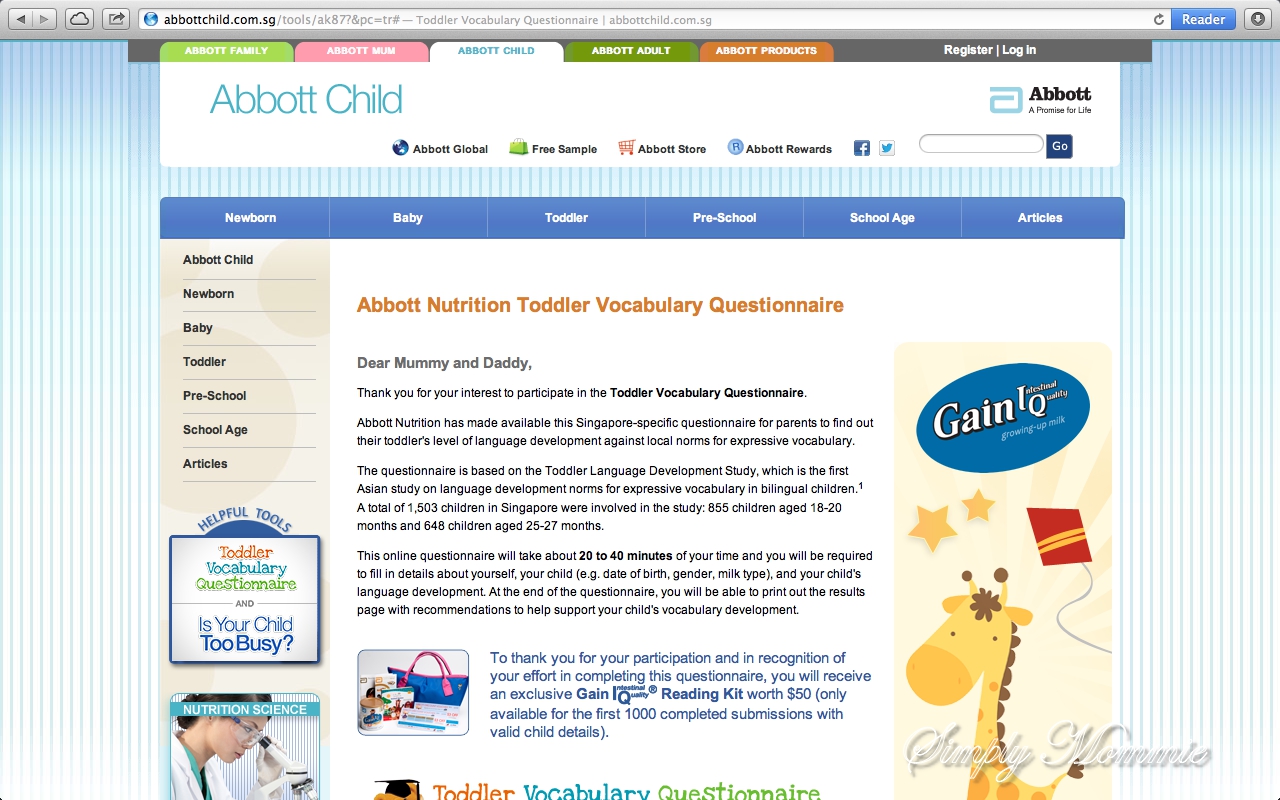
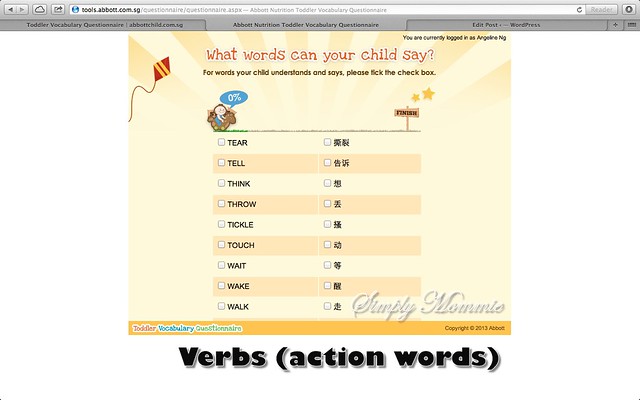


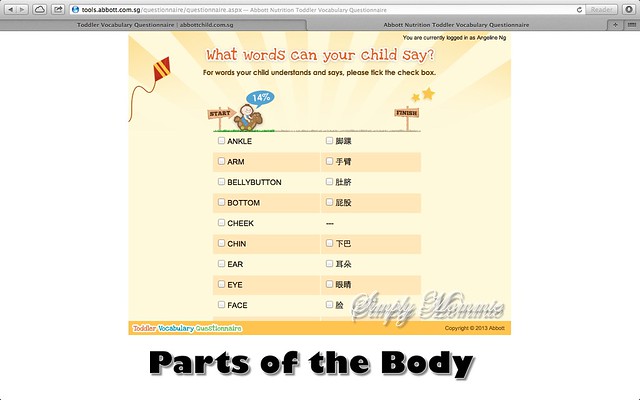
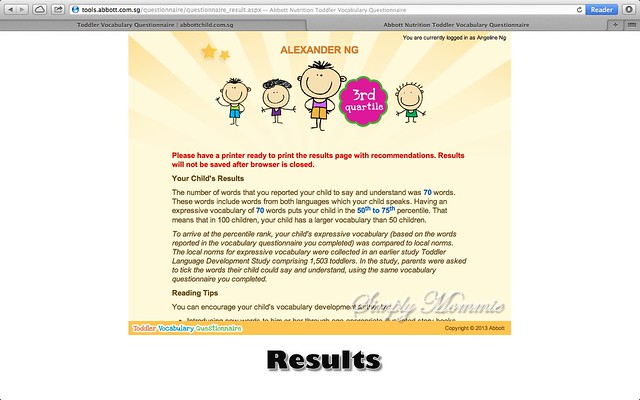
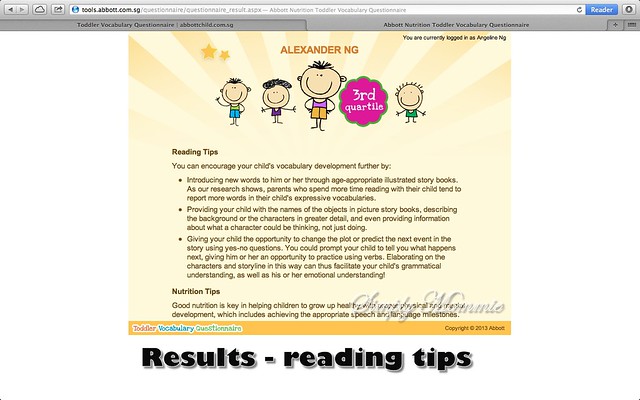

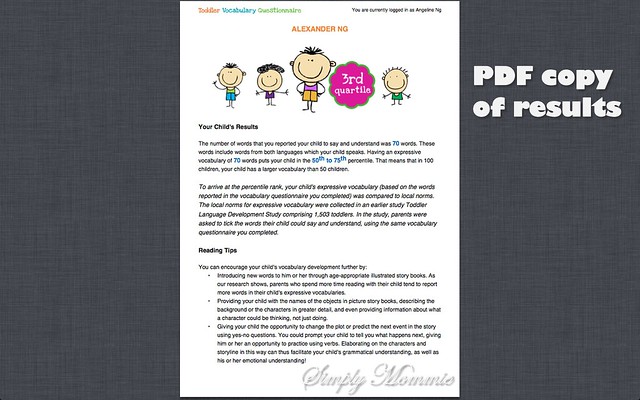







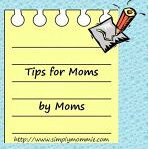


 Facebook
Facebook Twitter
Twitter Pinterest
Pinterest Instagram
Instagram
I think what would be really funny would be a dictionary of colloquial terms that Singaporean toddlers use. Like “pom pom” for bath time, etc.! LOL
Edlyn recently posted…8 Months, and boy time is flying!